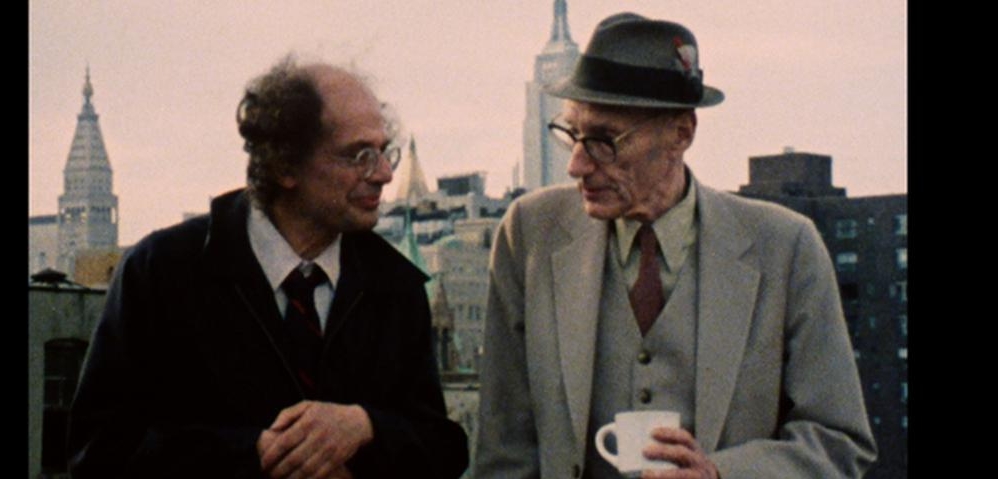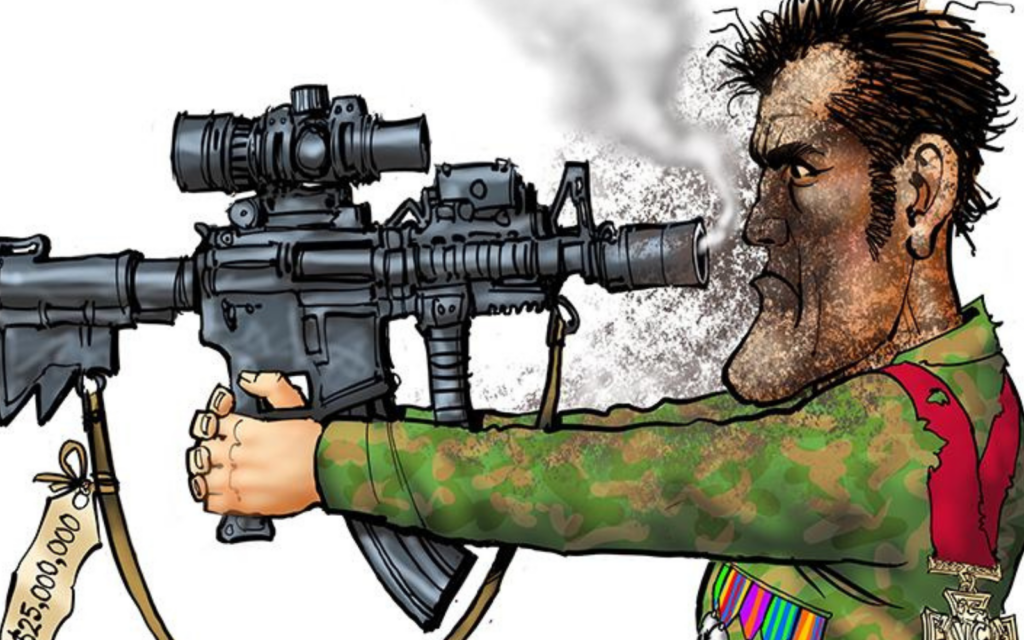Of all the Beat writers, William S Burroughs is perhaps the most complex. Born into a successful middle class family, Burroughs’ life was as volatile as his literary output was colourful. Burroughs’ 1959 novel Naked Lunch is regarded as one of the defining books of the Beat period: replete with fantastic and gruesome imagery, and barely held together by a confusing narrative that betrays its author’s vivid imagination and narcotic addiction.
Released originally in 1983, Burroughs: The Movie documents Burroughs family and personal life, artistic inspiration and literary successes. Interspersed with interviews with fellow Beat writers Allen Ginsberg, Terry Southern and Herbert Hunkel, we see Burroughs walking through his childhood neighbourhood in Kansas, writing in prolifically Morocco in the 1950s and reading extracts from his work to excited young audiences in the 1970s.
But like so many artists, Burroughs was replete with personal failings: in 1951 Burroughs accidentally shot his common-law wife, Joan Vollmer; Burroughs’ addiction to drugs and peripatetic lifestyle eroded any chance of a paternal bond with his son William Jnr (‘Billy’). Perhaps the most disconcerting scenes in the movie are those show Burroughs talking with his son by Vollmer, William Jnr (‘Billy’), a published writer and drug and alcohol addict, and who died during the making of the film Billy from cirrhosis of the liver. While Burroughs’ relationship with Billy was strained, the two are shown talking amicably in the film. When Allen Ginsberg suggests diplomatically there was a bond between father and son, Ginsberg’s faint praise is enough to subliminally condemn Burroughs’ responsibilities as a father.
His personal imperfections notwithstanding, Burroughs comes out of the film as a talented and unpretentious writer, whose writing altered the course of literature. Burroughs greeted controversy and moral panic as some would great bouts of bad weather: inevitable, turbulent but never lasting. There won’t be another William Burroughs – and neither should there be.
BY PATRICK EMERY







